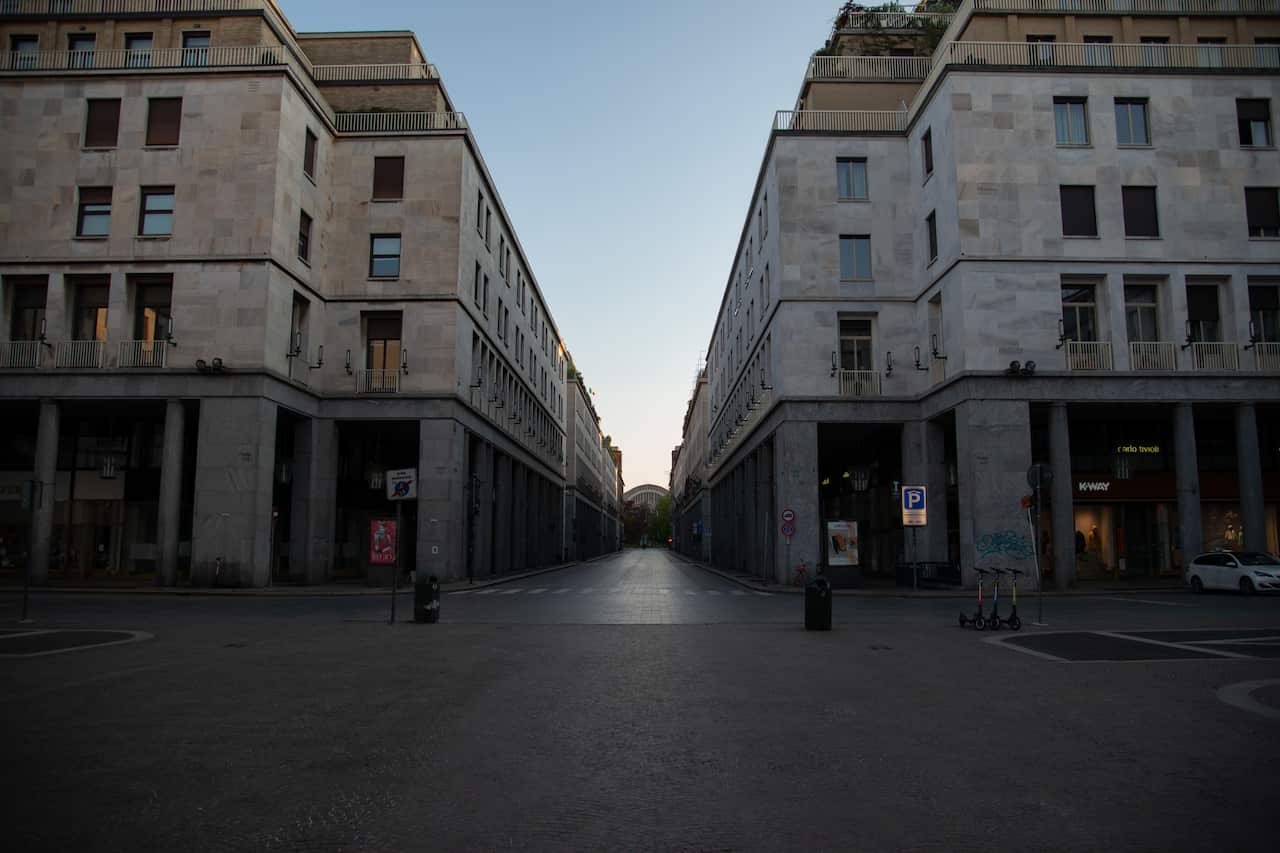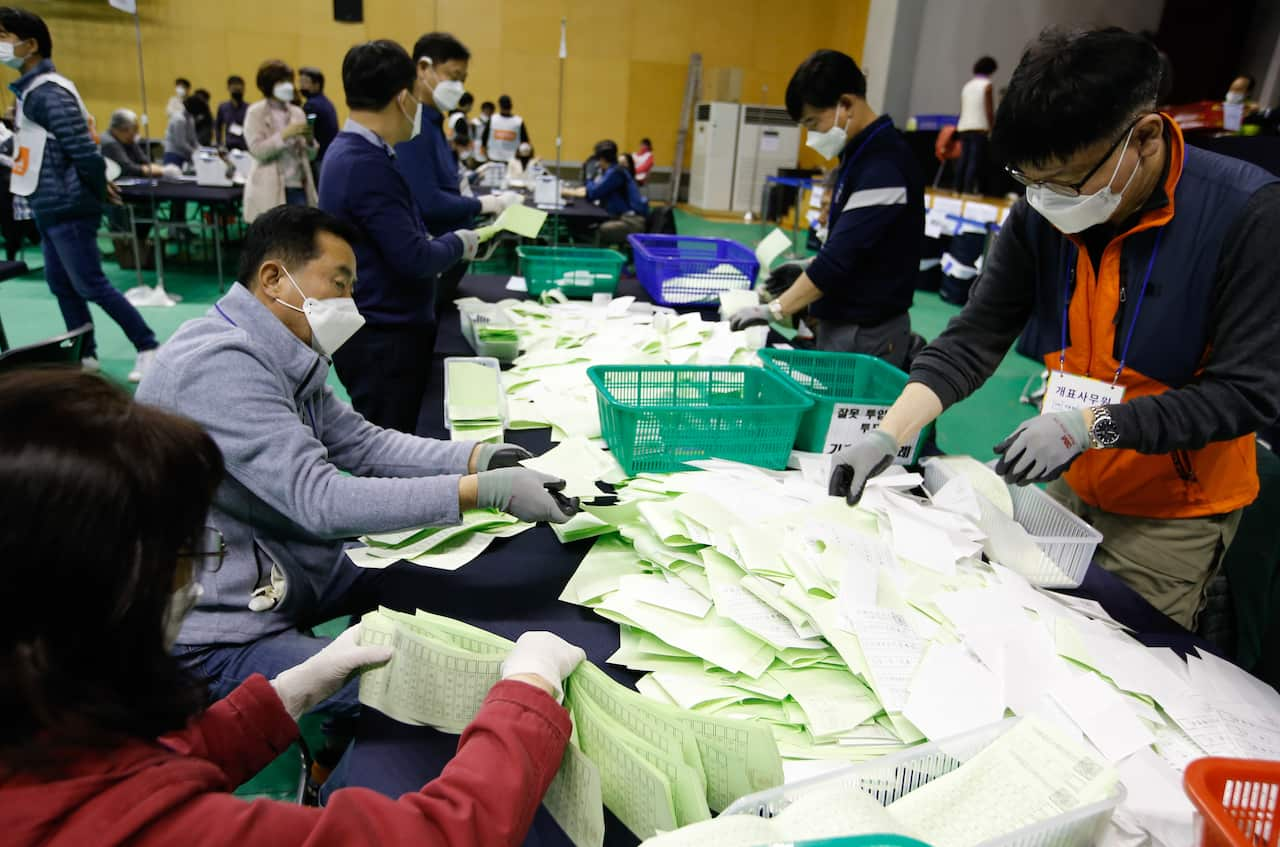Sluggish sales at reopened stores in China and across Europe suggest business won't necessarily bounce right back when the coronavirus crisis eases.
The first steps in lifting the economically-crippling restrictions in some parts of the world are running into resistance, with shoppers and other customers staying away from the reopened businesses and workers, afraid the newly restored freedoms could put their health at risk.
In China, millions are still wary of spending much or even going out. Some cities have resorted to handing out shopping vouchers and trying to reassure consumers by showing officials in state media eating in restaurants.
"I put off plans to change cars and spend almost nothing on eating out or entertainment," said Zhang Hu, a truck salesman in Zhengzhou who has gone back to work but has seen his income plummet because few people are looking to buy 20-tonne rigs. "I have no idea when the situation will turn better."
In Austria, Marie Froehlich, who owns a clothing store in downtown Vienna, said her employees were happy to get back to work after weeks of being cooped up at home. But with her business dependent largely on tourism, which has dried up amid the travel restrictions, she expects it will take months to return to normal.
"Until then, we are in crisis mode," she said.
The scene was similar in hard-hit Italy, where the streets of Rome were largely deserted despite an easing of restrictions this week that allowed some stores to reopen.

Infections surpass two million
Worldwide, deaths have topped 128,000 and confirmed infections have surpassed two million, according to the tally kept by Johns Hopkins University.
The US has reported more than 26,000 deaths - the highest in the world - and more than 600,000 confirmed infections, by Johns Hopkins' count.
Still, the nightmare scenarios projecting a far greater number of deaths and hospitalisations have not come to pass, raising hopes from coast to coast.
Millions of South Korean voters wore masks and maintained social distancing on Wednesday as they voted in parliamentary elections, with turnout surprisingly high. The government resisted calls to postpone the balloting, seen as a midterm referendum on President Moon Jae-in.

Iran's death toll 'undercounted'
A parliamentary report in Iran said the country's death toll is probably almost twice the officially reported figure of almost 4800 as a result of undercounting and because not everyone with breathing problems has been tested for the virus. The explosive allegation was buried in a footnote in the 46-page document.
Around the world, the economic damage from the effort to "flatten the curve" of infections has mounted alarmingly.
Signifying a huge shift in consumer behaviour, grocery store sales in the US jumped nearly 26 per cent as people stocked up on food and consumer goods to ride out the crisis, while car sales plummeted by one-quarter and clothing store sales slid by more than half, the government reported. The category that mostly includes online shopping rose more than 3.0 per cent.
"With clear signs of panic buying of necessities and the fact that lockdowns were introduced only around the middle of the month means that far worse is to come in April and the second quarter more generally," said Michael Pearce, an economist at the consulting firm Capital Economics.
US President Donald Trump has been anxious to lift stay-at-home orders and business shutdowns in the country but those aspirations continue to meet stiff resistance on the state and local levels.
On Wednesday, a day after New York City added nearly 4000 deaths to its toll, in part by counting people who were believed to have the virus but were never tested before they died, Mayor Bill de Blasio told Fox News that he intends to move cautiously.
"In this case, I'll call myself a conservative," said Mayor de Blasio, whose city's death toll now tops 10,000. "Look, I want to see people back to work as much as anyone. I feel it urgently. But we've got to secure the health and safety first of all New Yorkers and, obviously, all Americans... We get one chance to get it right."
EU plans map out of the crisis
The European Union echoed such concerns even as it published a 16-page road map plotting a united course out of the crisis for its 27 member countries.
The EU warned that "any level of gradual relaxation of the confinement will unavoidably lead to a corresponding increase in new cases".
The World Health Organization's special envoy for COVID-19 David Nabarro urged that any recriminations about the organisation be left until after the virus has been defeated.
Mr Trump had on Tuesday halted funding to the WHO pending a review into how it handled the outbreak.
People in Australia must stay at least 1.5 metres away from others and gatherings are limited to two people unless you are with your family or household.
If you believe you may have contracted the virus, call your doctor (don’t visit) or contact the national Coronavirus Health Information Hotline on 1800 020 080.
If you are struggling to breathe or experiencing a medical emergency, call 000.
SBS is committed to informing Australia’s diverse communities about the latest COVID-19 developments. News and information is available in 63 languages at sbs.com.au/coronavirus

